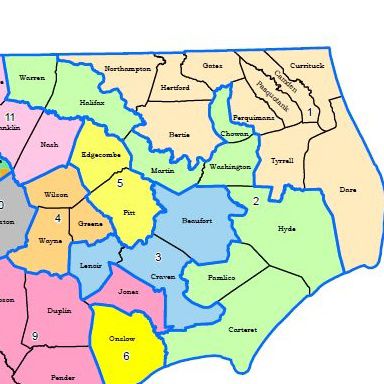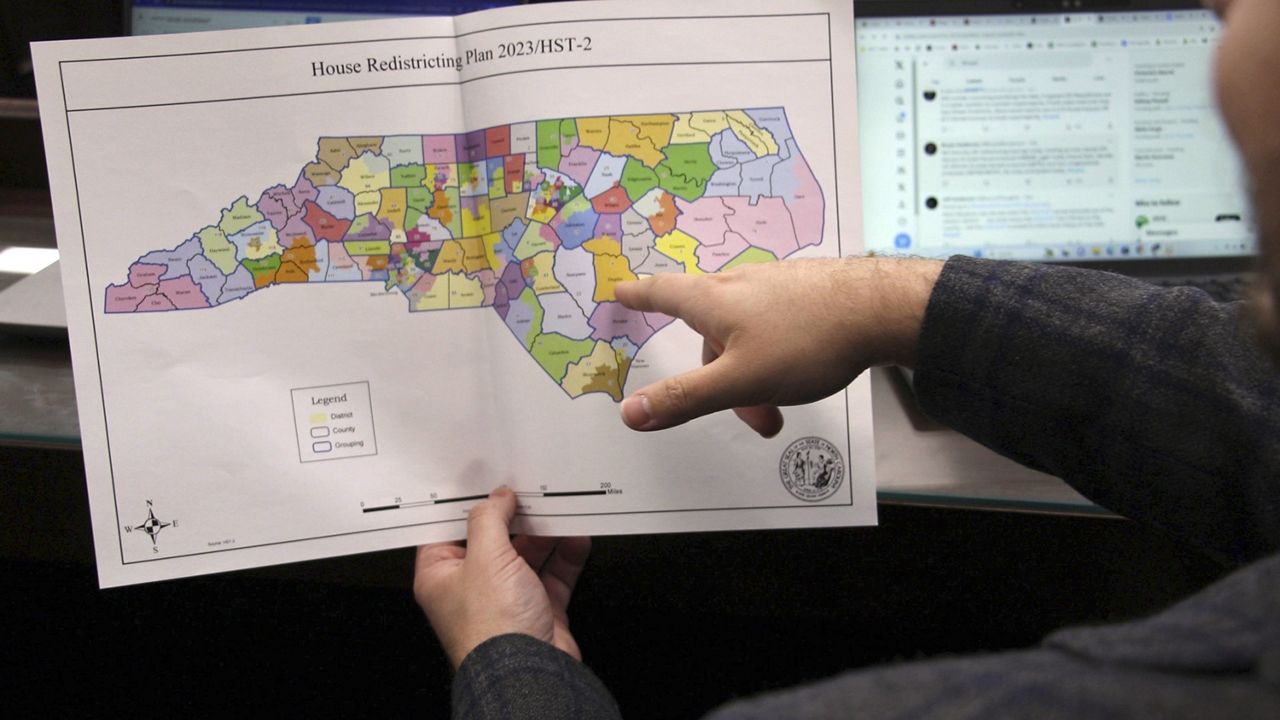A federal appeals court declined to block the newly drawn North Carolina Senate map from taking effect after two voters argued the map diluted Black voting power in northeastern N.C.
What You Need To Know
- A panel in the Circuit U.S. Court of Appeals declined to block the N.C. Senate map from taking effect
- Plaintiffs argued that the Republican-drawn map was an illegal racial gerrymander
- It affirmed the decision of a lower court that found that blocking the map would be disruptive to the election
- Plaintiffs can still argue their case in a full trial at the district court level
A three-judge panel in the 4th Circuit U.S. Court of Appeals affirmed the decision of a lower court, which rejected the plaintiffs' request for a preliminary injunction that would have kept the map from going into effect for this year’s elections.
The lawsuit was filed by two Black voters who reside in Senate District 2, Rodney Pierce and Matthew Moses, shortly after the Republican-controlled General Assembly passed new election maps into law last October.
The plaintiffs argued that Senate Districts 1 and 2, which stretch from Warren County on the Virginia border to Carteret County on the coast, diluted the voting strength of Black voters in violation of the Voting Rights Act. The plaintiffs sought both preliminary and permanent injunctions that would keep the maps from going into effect.

Pierce unseated a 20-year state House veteran in a Democratic primary that featured election protests and recounts earlier this month. With no Republican in the race, he is slated to head to Raleigh next January.
In January, a district court denied the plaintiffs' request for a preliminary injunction, finding “no evidence... the General Assembly in 2023 [had] a strong basis in evidence to believe that Section 2 required [it] to create a majority-black Senate district in northeast North Carolina.” The court also ruled that the plaintiffs failed to justify barring the maps from going into effect so close to an election.
A majority opinion written by two Republican-appointed judges from the appeals court agreed with the lower court, arguing that redrawing the map now would be too disruptive to an election that is already underway.
The third judge on the panel wrote a minority opinion that argued the new Senate map “cracked the state’s Black Belt right down the middle” and that there is enough time to draw a new map.
Thursday’s decision does not end the case. While it denied the preliminary injunction, the plaintiffs can still argue their case in a full trial at the district court level.
The case is one of several challenging new state House, state Senate and congressional maps that were enacted by Republicans in the General Assembly last October.
A federal lawsuit was filed in December by Black and Latino voters, arguing that four congressional districts are illegal racial gerrymanders. Another federal lawsuit filed by North Carolina’s Conference of the NAACP asks the court to strike down all three new maps.
And a state-level lawsuit argues that the new maps create an unfair partisan advantage for Republicans, violating North Carolina’s Constitution guarantees of free and fair elections. Last year, the Republican-majority state Supreme Court overturned a decision from the previous Democrat-controlled court that outlawed partisan gerrymandering, triggering last year’s round of redistricting.








